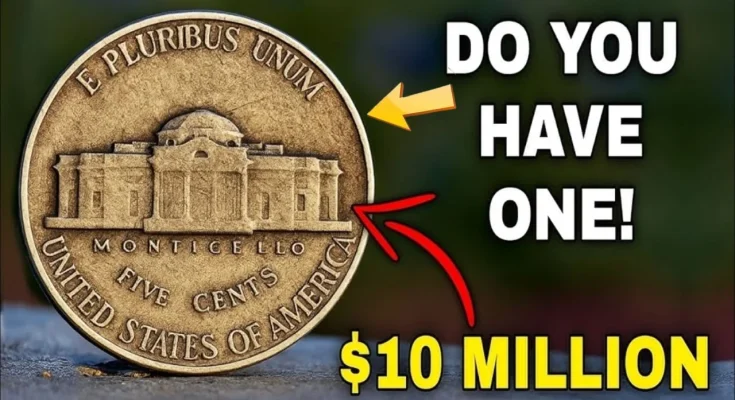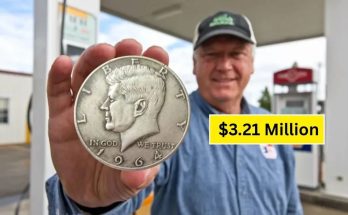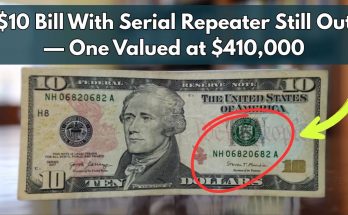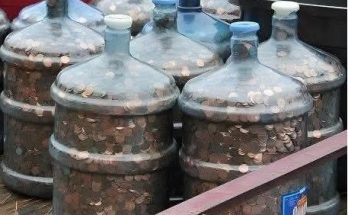How a War-Era Jefferson Nickel Became One of America’s Most Valuable Coins: During World War II, America saw many changes—not just in society and industry, but even in its coins. One small five-cent coin from that period has now become one of the most sought-after treasures among collectors. Let’s explore how the Jefferson nickel from the war years gained such fame and value.
The Birth of the Jefferson Nickel During Wartime
The Jefferson nickel was first introduced in 1938 to honor Thomas Jefferson, the third President of the United States. But during World War II, the U.S. Mint had to make some big changes. Nickel metal was an important material for making weapons and military equipment. To save it for the war effort, the government decided to change the composition of the nickel coin.
From 1942 to 1945, Jefferson nickels were made with a mix of 35% silver, 56% copper, and 9% manganese. This new combination gave the coins a unique look and made them stand out from other nickels. These coins came to be known as “War Nickels” or “Silver Nickels”.
Why the War Nickels Are Special Today
At first glance, a war nickel might look like any other Jefferson nickel. But collectors know they are different. The use of silver not only changed the appearance but also made them more valuable over time.
Another unique feature is the large mint mark placed above Monticello on the back of the coin. This was the first time a U.S. coin had a mint mark in that position. Coins from the Philadelphia Mint (marked with a large “P”), Denver (“D”), and San Francisco (“S”) were all part of this special series.
The Rarity Factor That Drives Their Value
Not all war nickels are equally valuable. Some years and mint marks are rarer than others. For example, the 1943-P “3 Over 2” error nickel is highly prized because of a minting mistake. Coins in perfect condition, called “uncirculated,” are even more desirable.
Over time, as many of these coins were spent and worn down, the number of high-quality examples became smaller. This scarcity is a big reason why collectors are willing to pay top dollar for them today.
Record-Breaking Sales and Growing Popularity
Some war nickels have sold for thousands of dollars at auctions. Their historical connection to World War II, combined with their silver content and unique design, makes them a favorite for coin lovers. Even casual collectors often keep an eye out for these nickels in their spare change or old family coin jars.
Table: Key Facts About War-Era Jefferson Nickels
| Feature | Details |
|---|---|
| Years of Production | 1942 – 1945 |
| Metal Composition | 35% Silver, 56% Copper, 9% Manganese |
| Special Mint Marks | P (Philadelphia), D (Denver), S (San Francisco) |
| Notable Rare Variety | 1943-P 3 Over 2 Error Nickel |
| Approximate Value Range | $1.50 to over $10,000 (depending on condition) |
How to Spot a War-Era Nickel in Your Pocket Change
If you’re curious about whether you’ve got a war nickel lying around, check the back of the coin. Look for a large mint mark above the Monticello building. Also, check the date—if it’s between 1942 and 1945, and the coin has a slightly duller silver tone, you might just be holding a small piece of World War II history.
Why These Coins Hold More Than Just Monetary Value
Beyond their price tags, war nickels carry stories from an important era in history. They remind us of a time when even small everyday objects were changed to support a larger cause. For many collectors, owning one of these nickels is like holding a tiny piece of America’s past.
FAQs
What makes a Jefferson war nickel valuable?
Its silver content, unique mint marks, and historical connection to World War II all add to its value. Rare errors and coins in excellent condition are worth much more.
Can I find a war nickel in my change today?
It’s rare but possible. Most war nickels were pulled out of circulation long ago, but they sometimes turn up in coin jars or old collections.
How much silver is in a war nickel?
Each coin contains about 0.056 troy ounces of silver.
Are all Jefferson nickels from 1942 made of silver?
No. Only those minted later in 1942 with the large mint mark above Monticello are silver war nickels. Earlier 1942 nickels still used the original composition.



